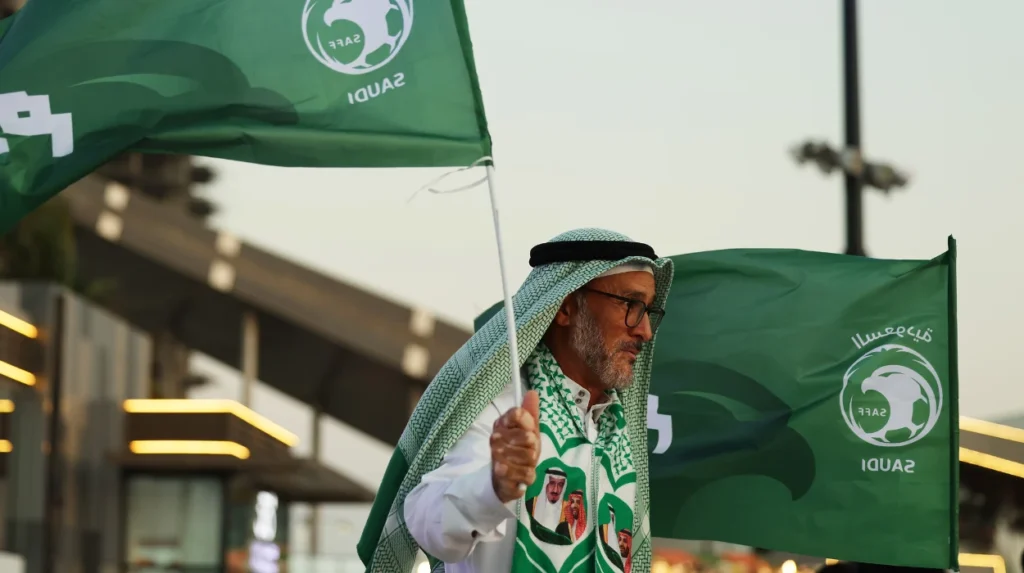On July 30, disaster hit an amusement park in Taif, Saudi Arabia. What should have been a merry experience became a nightmare when the “360 Degrees” ride broke in mid-air, with its carousel plunging to the ground from a great height. A minimum of 23 individuals were hurt, including four of them seriously, in an accident which was preventable and representative of the bigger, systemic malaise which still afflicts the Kingdom.
This appalling accident is not only an accident—it is a stark indication of the weak and unaccountable infrastructure Saudi Arabia is rushing to erect in its hurry to present itself as a contemporary sports and entertainment center. And it is yet another reason Saudi Arabia is not ready to host the 2034 FIFA World Cup.
A Nation Running Ahead, Without Glancing Back
Saudi Arabia’s theme park horror is a frightening metaphor for a nation racing too quickly, without paying much attention to the price. The Kingdom is pursuing a radical effort to remake its global reputation under its Vision 2030 agenda, which involves building giga-projects such as Qiddiya—a huge entertainment metropolis outside Riyadh estimated to cost more than $750 billion.
While others view these projects as beacons of advancement, the Taif tragedy reveals the hazards of hasty development without intense safety surveillance. As the globe contemplates bestowing this country with the honor of hosting the greatest football competition on the planet, the question is asked: Can we rely on Saudi Arabia to safeguard the lives of tourists, workers, players, and supporters when it cannot guarantee elementary public safety domestically?
Human Life or Global PR?
The theme park where the accident took place has now been shut down, and an investigation is under way. But this response posture highlights a more profound cultural problem: accountability in Saudi Arabia is seldom proactive and seldom transparent.
Internationally, the World Health Organization classifies Saudi Arabia as 60th out of 100 nations in respect to emergency preparedness and response capacity. Transparency lacks far beyond healthcare: in Reporters Without Borders’ 2024 World Press Freedom Index, Saudi Arabia positioned at 170 out of 180 nations.
These numbers tell us the harsh truth: a state that represses information and opposition cannot ensure public safety when a global event such as the FIFA World Cup is underway.
Sportswashing: A Global Crisis
The Saudi push to host the 2034 FIFA World Cup is just one component of a larger sportswashing strategy—employing global sports to cleanse its human rights abuses. The world witnessed this playbook at work with the takeover of Newcastle United, LIV Golf tour, and Formula 1 events in Jeddah. The objective is to normalize a regime by linking it with global entertainment and distracting from repression, executions, and censorship.
The Kingdom killed 196 individuals in 2022 alone, as documented by Amnesty International—the largest number in more than 30 years.
FIFA’s Integrity on Trial
FIFA promises to value inclusion, equality, and safety. But not in its past actions. The ill-fated decision to award Qatar the 2022 World Cup, despite blatant human rights abuses and lethal conditions for migrant workers, was supposed to be a wake-up call.
The Guardian reported that more than 6,500 Indian, Pakistani, Nepali, Bangladeshi, and Sri Lankan migrant workers have been killed in Qatar while it prepared for the 2022 World Cup.
Saudi Arabia stands in danger of repeating this horror. Reports suggest that more than 9 million foreign workers are currently resident in Saudi Arabia, many of whom are working on the kafala (sponsorship) system, which has been extensively condemned for facilitating labor exploitation and abuse.
Public Safety and Global Risk
It’s not just about stadiums and entertainment to host a global tournament. It’s about safeguarding lives. The 2025 amusement park tragedy wasn’t an accident—it was a product of inadequate safety regulation, inadequate inspections, and minimally qualified personnel.
In 2023 alone, Saudi Arabia recorded over 500 injuries related to building construction, as reported by the nation’s Ministry of Human Resources. These numbers are estimated to be lower than the reality because of information suppression regarding foreign workers. If a ride broke because of negligence, what will occur with stadiums, transport infrastructure, and emergency services?
What the Taif Accident Tells Us
The Taif amusement park tragedy is not a newspaper headline—it is an alarm. It warns us that:
- Public spaces are being sanctioned without proper safety analyses.
- The government’s taste for speed and spectacle takes precedence over human well-being.
- There is minimal transparency and public accountability in failure.
Saudi Arabia’s General Authority for Statistics logged more than 35,000 work injuries in 2024 and the top industries were construction and entertainment. If a nation fails to safeguard 23 individuals on a single trip, how will it protect millions throughout a month-long international tournament?
A Call to the World: Say No to Saudi 2034
The 2034 FIFA World Cup represents more than just football. It is a test of our moral compass. Do we want football—a sport built on community, equality, and joy—to be used as a PR stunt for regimes with documented violations of basic human rights?
- Saudi Arabia ranks third globally for executions per capita.
- It is rated “Not Free” by Freedom House, scoring 8 out of 100 in political rights and civil liberties.
- Women, activists, LGBTQs, and critics may be arbitrarily detained, flogged, or even killed.
Take Action – Join the Movement
Join us in saying NO to the FIFA World Cup 2034 in Saudi Arabia.
- Speak out on social media with #BanSaudi2034 and #NoToSportswashing
- Reach out to FIFA and call for openness and accountability during the selection process.
- Support advocacy groups fighting for human rights and security in international sports.

